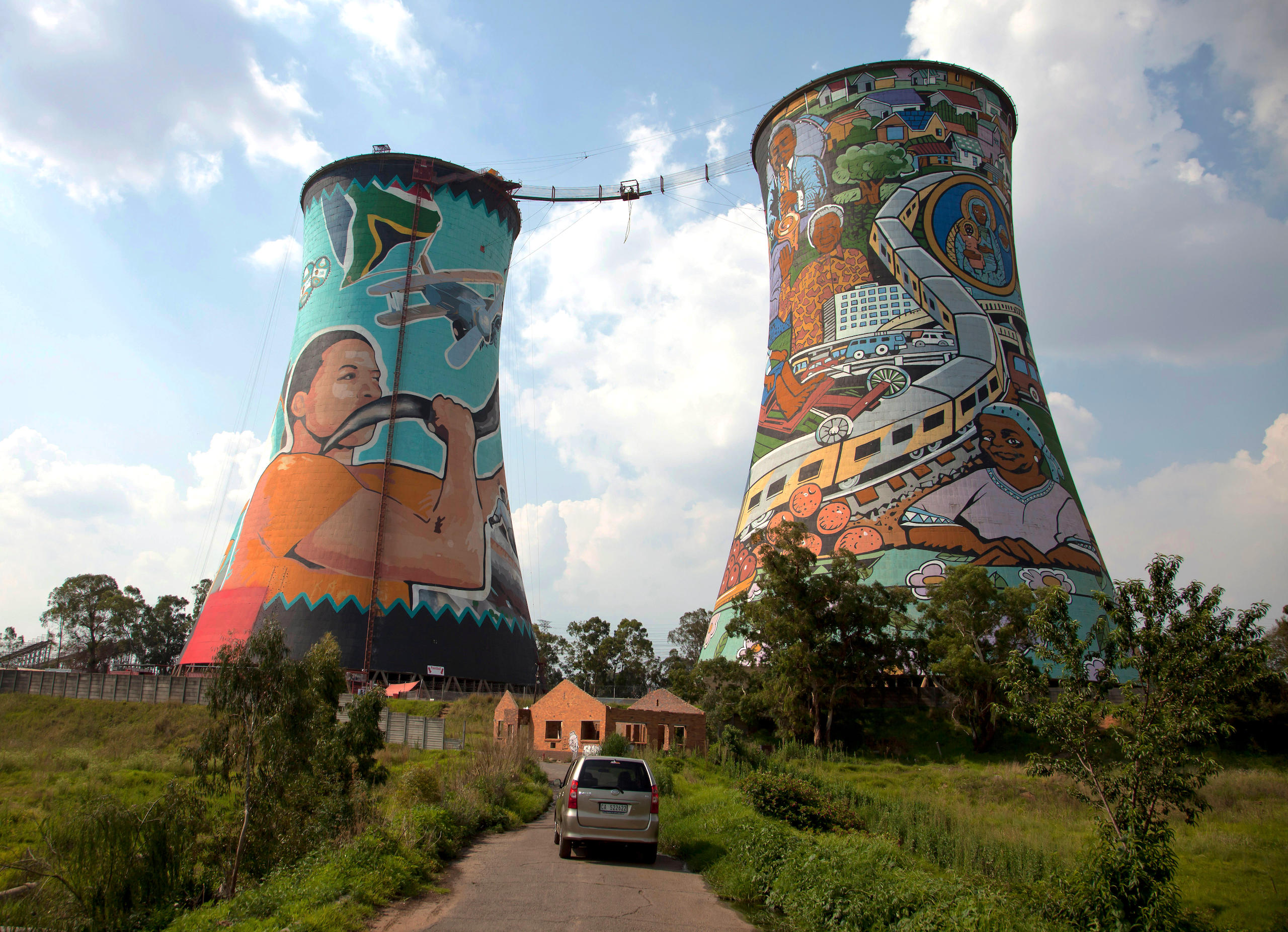Africa is looking at China’s presence in energy on the continent with hope for a just energy transition from coal to renewables. On 22 September, speaking at the UN General Assembly, China’s president, Xi Jinping, announced China would provide strong support for green transitions in developing nations and stop building coal power overseas.
On 30 November, the 8th Forum on China–Africa Cooperation (FOCAC) issued a declaration reiterating those points on climate change. At the recent annual meeting of the Africa Coal Network, the hundred-plus organisations attending from over 20 African nations welcomed the move and called for China to be a responsible partner in supporting renewables in Africa.

Coal phase-out and a just transition
What is a just transition, and why is it important for climate governance in Africa and future China–Africa cooperation on renewables? China Dialogue looks at South Africa, the first African nation to start discussing the idea, for answers.
South Africa has been discussing just transitions for over a decade. One of the critical points of contention has been when and how coal should be phased out.
The Congress of South African Trade Unions (COSATU) was the first to raise the idea. South Africa’s biggest trade union federation published a climate change policy framework in the run-up to the 2011 climate change talks in Durban. A just transition was fundamental to its position and insistence that economic transitions should not harm the interests of the working class or developing nations and that developed nations should act appropriately based on their historical responsibilities.
The term began to appear in various South African government documents. In 2015, the country’s nationally determined contribution (NDC) was the only one to stress a just transition. However, thanks to support from several countries and international trade union movements, that year’s Paris Agreement referred to a just transition in its preface.
South African recognizes urgency of decarbonising energy systems by increasing energy efficiency, and by accelerating the retirement of coal power and the deployment of renewables, but it also faces significant development challenges, including poverty, inequality and unemployment, which have been exacerbated by the impacts of the COVID-19 pandemic. South Africa thus emphasizes that a just, equitable and inclusive transition for workers and affected communities is essential so that all are protected against the risks, and benefit from the opportunities, presented by this transition, and no one is left behind.
At the COP26 Glasgow climate conference in November 2021, South Africa announced an International Just Energy Transition Partnership, in collaboration with major G7 countries (UK, US, France, Germany and the EU) which intends over the next five years to provide around US$8.5 billion in multilateral and bilateral grants and concessional loans to assist South Africa in achieving its low-carbon transition goals.
China-Africa cooperation on renewables
China’s halt to overseas coal power construction could result in a new era for China–Africa cooperation on renewables. China can do much to help the continent with its just transition.
South Africa is a historically coal-reliant country where private capital tends to lead on developing renewables, and there are high hopes for Chinese firms to expand beyond their more traditional roles.
Shen Wei, an energy expert with the Institute of Development Studies in the UK, says that in South Africa and elsewhere on the continent, Chinese firms involved in renewable energy projects usually act as engineering, procurement and construction contractors – few are actually the project developer. That limits what Chinese firms can do to help with a just transition.
African NGOs have suggested that Chinese investment could take a less market-based route, using renewables projects to promote the development of communities and local industries, as well as foster social entrepreneurship, create livelihoods and ensure access to green energy.
“The role China can play in this regard is actually underestimated,” said Saliem Fakir, the African Climate Foundation’s executive director. He said that China should play a stronger leadership role in renewable energy technology, but relying on individual projects and companies alone will not be sufficient to achieve this goal. He believes that climate and renewable energy should be considered part of broader strategic planning for China–Africa cooperation, with corresponding support on financing and institutions also needed.
Shen Wei thinks there could be more institutional cooperation between China and Africa. China could set up knowledge-sharing mechanisms and provide renewable engineering consultancy services to African nations and share its experiences with planning for the expansion of renewables.
“But before anything, we have to clarify the overall goal of China–Africa cooperation on renewable energy,” Fakir said. He added that China and African countries need a clear strategic framework on the relationship between climate and energy because renewable energy development is set to profoundly impact Africa’s social and economic future.
There is a steady stream of such policy signals. China recently published a white paper on a “new era” of cooperation with Africa, with the fight against climate change and the use of renewables described as a “strategic consensus”, while the recent 8th Ministerial Conference of the Forum on China-Africa Cooperation saw joint statements on tackling climate change, with China committing to increase its investment in renewables and help Africa “optimize its energy mix.” Notably, in the joint statement, both sides agree to make natural gas projects eligible for the support of green finance, a move that will likely re-focus the just transition debate on this fossil fuel.
African countries have high hopes for the upcoming increase in China–Africa cooperation on renewables. But it remains up to Chinese firms, financial institutions and policymakers to ensure they do their bit to ensure their contribution to the energy transition is fair and just.
SOURCE: Edited extracts from China Dialogue, December 3, 2021.
https://chinadialogue.net/en/climate/how-can-china-help-south-africa-achieve-a-just-transition/
